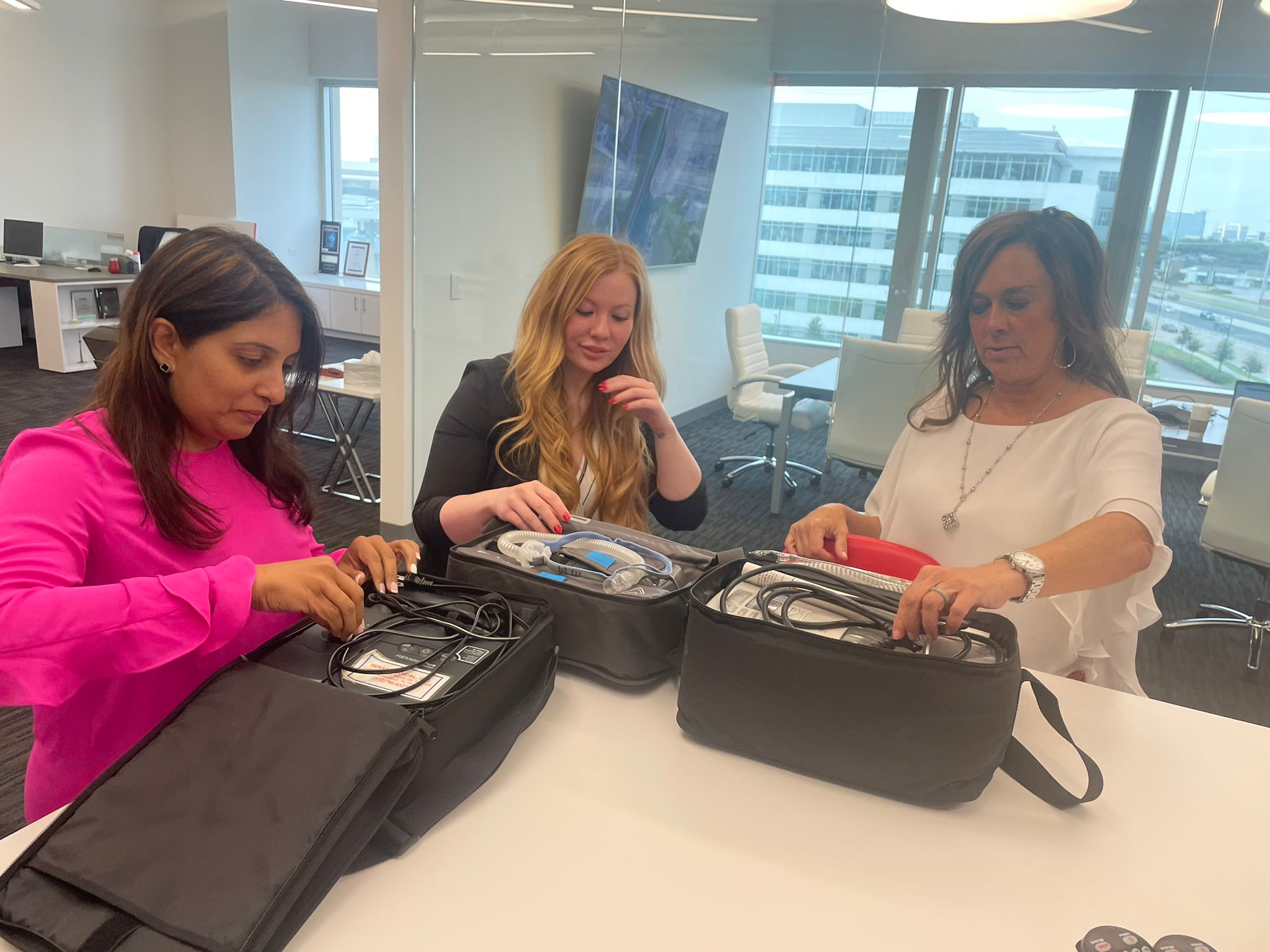Sanaja Jupud saw the images coming from his native India and decided he had to do something. COVID-19 has surged through the country, straining healthcare resources and causing mass deaths. In February, CNN broadcast photos of mass cremation piles as grieving loved ones stood nearby in hazmat suits. Jupud talked about all this with his loved ones back home and with his colleagues at his tech company, the Dallas-based Qentelli. He wanted to find a way to help.
By mid-August, more than 32 million people have been infected with COVID-19 in India. About 433,000 have died since the pandemic began early last year, according to the COVID-19 Data Repository managed by Johns Hopkins University. Some of those people were in Jupud’s circle.
In late April, Nature, a weekly international science and technology journal, reported that COVID was “sweeping through India at a pace that has staggered scientists. Daily case numbers have exploded since March: the government reported 273,810 new infections nationally on April 18.”
Jupud’s coworkers and his overseas family and friends all seemed to be saying the same thing: rural hospitals in India were overwhelmed. In many cases, he says these facilities were sharing a single ventilator because it was all they could afford.
Around this time, Jegarti Thayarapan, an old high school friend from India, shared a Bay Area news article about a doctor who had repurposed machines generally used for sleep apnea into non-invasive ventilators.
The doctor, Ajay Dharia, called it a “last resort option” but was asking people to donate used machines. “If we don’t think about it now, in two weeks or four weeks when the surge potentially happens, we can be overwhelmed,” he told ABC7 News in San Francisco.
Jupud found his opportunity. He joined with friends and coworkers to begin collecting old sleep apnea machines then converting them into non-invasive ventilators to send to rural hospitals in India. They set up donation locations around Dallas and have refurbished about 150 out of their goal of 1,000 total.
“[The non-invasive ventilators] are very portable and can be used by non-MDs and non-anesthesiologists,” Jupud says. “Not every rural hospital in India has qualified doctors. So, nurse practitioners and nurses can use the machines. They are so important because of how easy they are to use. They can be put in a hospital or an ambulance.”
The refurbished ventilator resembles a smaller home printer. Re-engineering them is easy to do, Jupud says. They take the used CPAP and BIPAP sleep apnea machines and add a small part that bypasses the flow of air and connects to the patient’s oxygen supply. It takes about 30 to 40 minutes to retrofit the machines into non-invasive ventilators and only a few seconds to strap the mask on a patient, check the connections, and turn on the machine to provide much needed oxygen relief to COVID-19 patients.
A regular ventilator can cost between $1,600 and $5,000. Retro-fitting is only about $50.
“The beauty of the technology is it can be used beyond COVID,” he says.
Jegariti had been raising money with Jupud. They were speaking with friends in healthcare to get a better grasp on the problem in their home country. She realized that sending machines could have an immediate impact, especially since some of the rural hospitals in India don’t have access to basic personal protective equipment.
“A lot of families have someone who has passed away from COVID,” Jegariti says. “When a family member dies, it affects everybody, more so when it’s the breadwinner or sole-earning members of the family.”
To help these families , they partnered with the Indian Medical Association. They later attracted a rotary club and other nonprofits, including India COVID SOS, an international nonprofit volunteer group that includes clinicians, engineers, and scientists that seeks to mitigate the crisis with evidence-based solutions rooted in scientific principles.
They also set up a GoFundMe page to raise $50,000. As of mid-August, the group has collected $48,000 in addition to the 150 machines they’ve turned into portable non-invasive ventilators.
In late May, they sent their first batch of machines to rural hospitals in India. Healthcare workers were obviously thankful and shared a video with them to show the non-invasive ventilator in use.
But they didn’t stop there. They also procured a few hundred pulse oximeters, which check oxygen concentration in the blood, and sent them to different parts of rural India. Similar to the non-invasive ventilator, they’re easy to use: they only require medical professionals to put it on a patient’s finger.
As for the future, once they reach their goal of 1,000 non-invasive ventilators, Jegariti says they plan to continue collecting the sleep apnea machines and refurbishing them as non-invasive ventilators for other parts of the world where medical access is limited.
They’re also seeking multi-parameter monitors, which monitor patients’ vital signs and oxygen levels, for beds in makeshift hospitals in India and a large containment of PPE kits to send to rural hospitals.
“We’ve been receiving text messages [from people who are saying], ‘You’re doing a great thing and helping people,’” Jupud says. “It makes you so emotional helping people in the rural part of India.”
Drop-off locations:
Qentelli: 14241 Dallas Parkway, Suite 540, Dallas, Texas 75254
Frisco Badminton: 6226 All Stars Ave, Frisco, TX 75034, USA
Design District (Irving): 6451 Riverside Dr, Suite #100, Irving, TX 75039, USA






